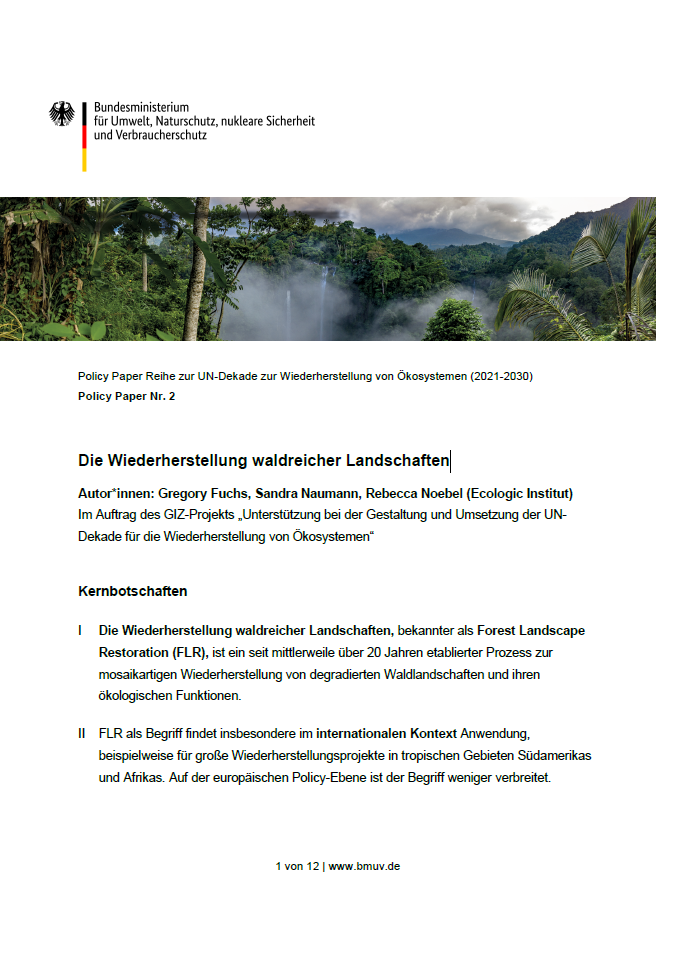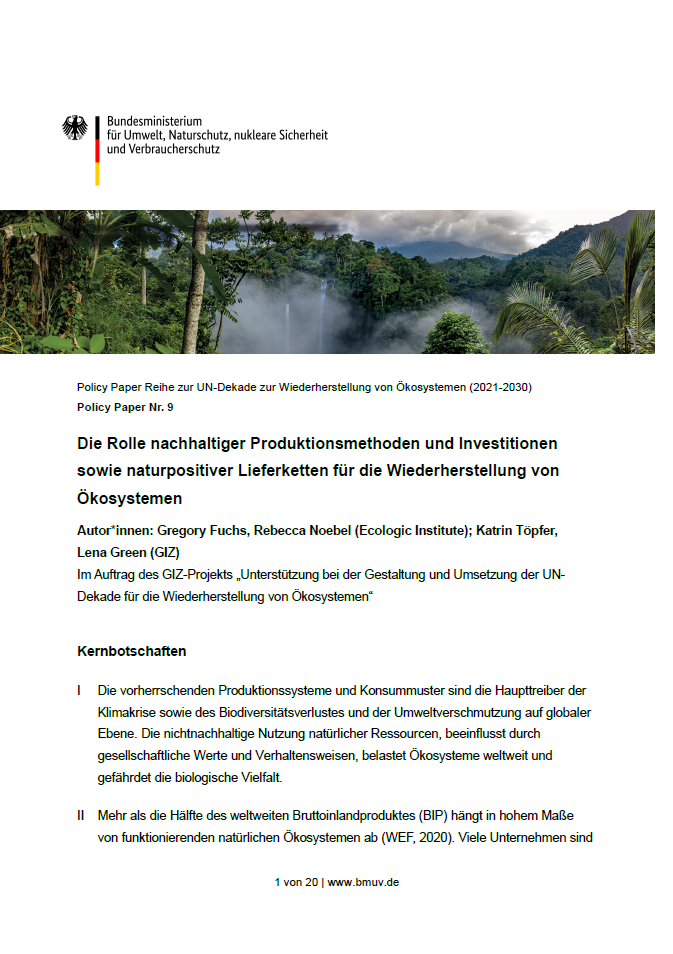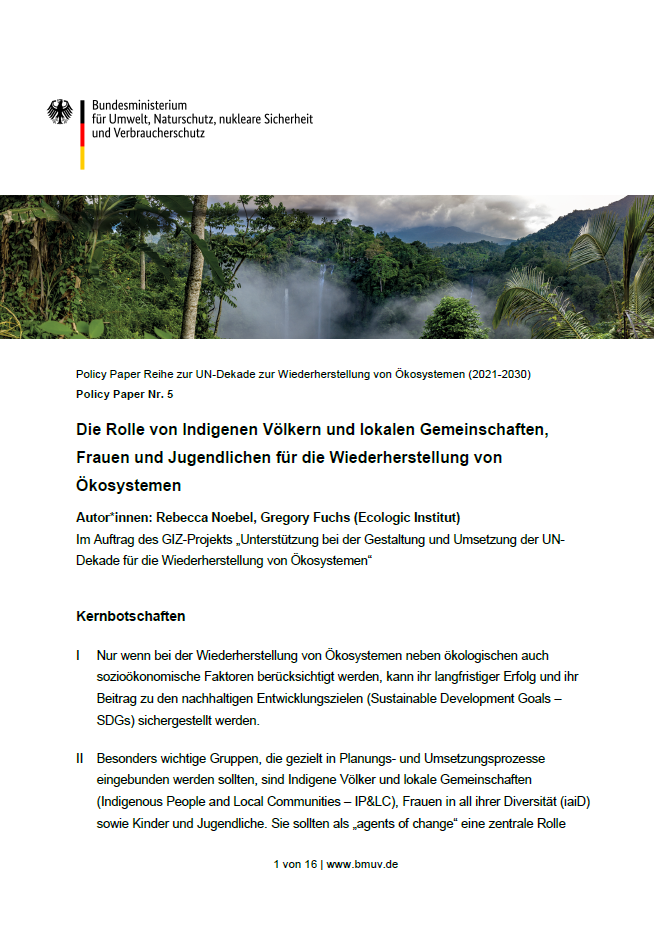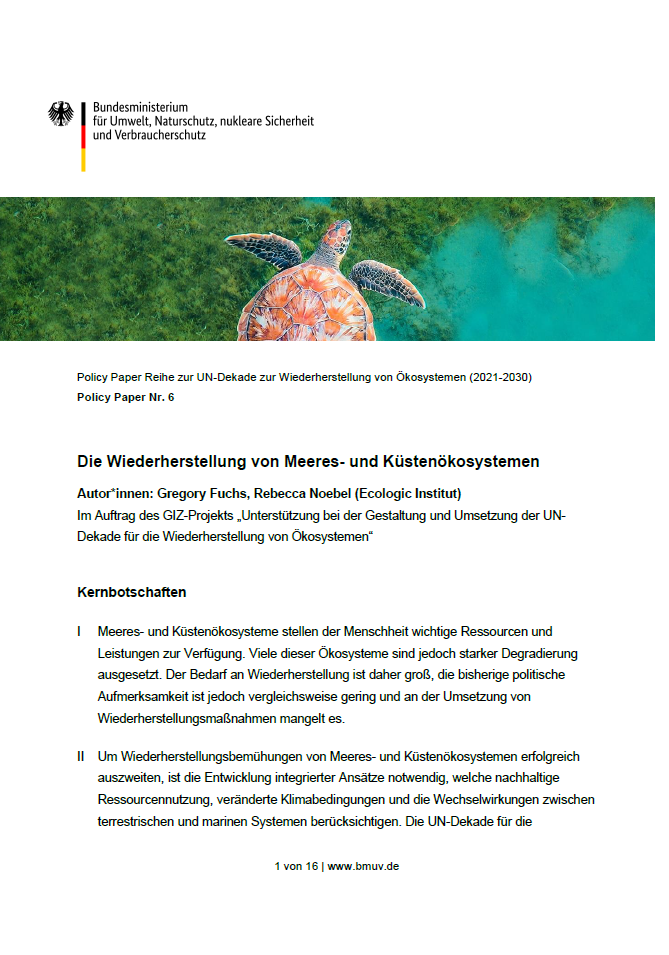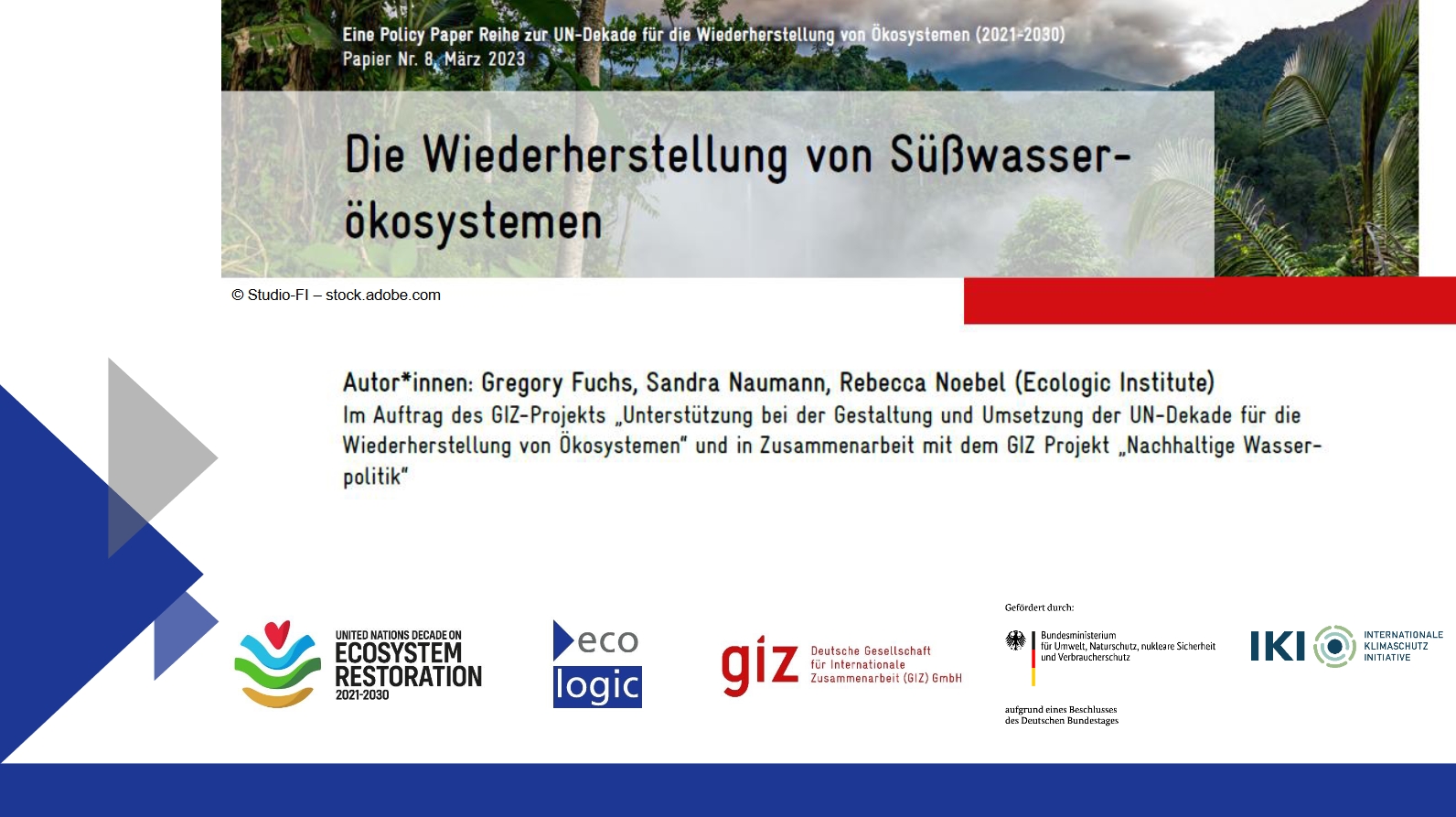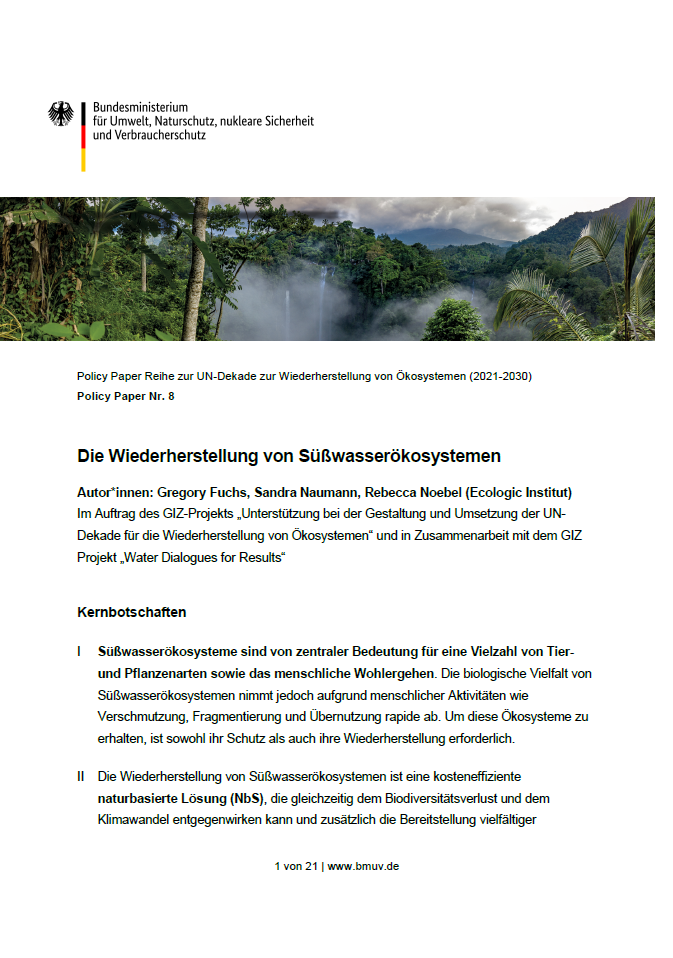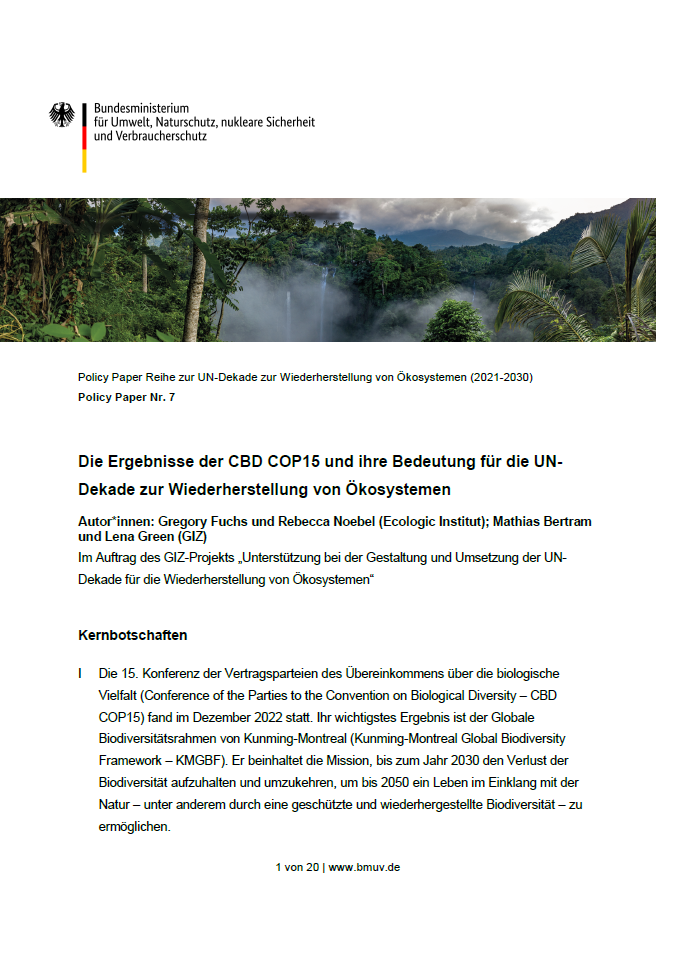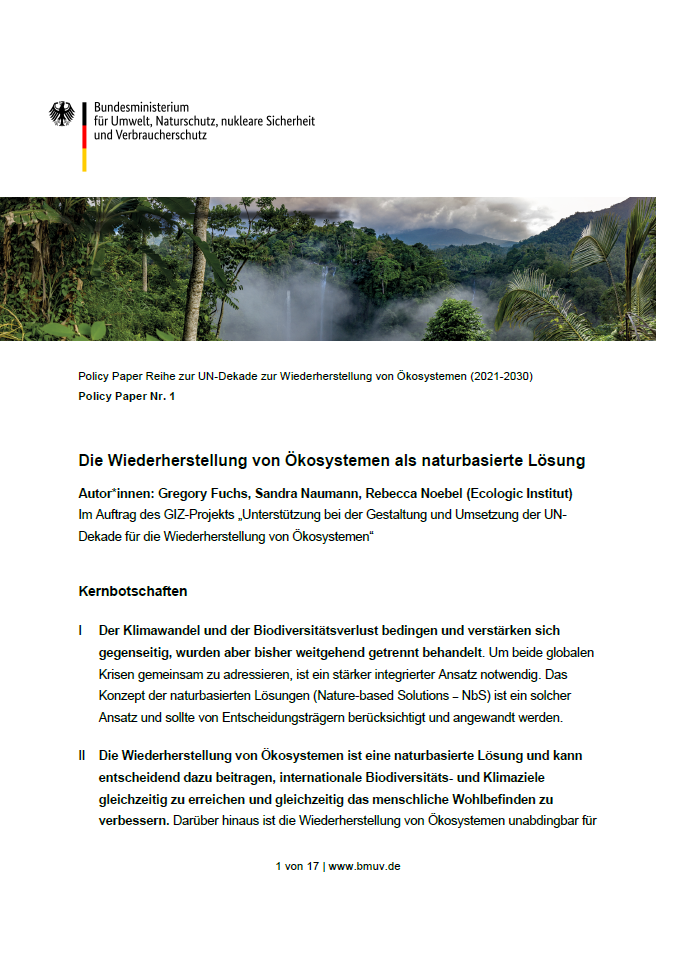Die Wiederherstellung waldreicher Landschaften
- Publication
- Citation
Fuchs; Gregory; Naumann, Sandra; Noebel, Rebecca (2023): Die Wiederherstellung waldreicher Landschaften. Federal Ministry for the Environment, Nature Conservation, Nuclear Safety and Consumer Protection, Berlin.
This policy brief examines the Forest Landscape Restoration (FLR) approach, considering global (e.g., the Bonn Challenge) and regional (e.g., AFR100) initiatives for restoring (forest) ecosystems, among others, and assesses their contribution to the UN multilateral goals.
Composed in 2023 and subsequently updated within the same year to reflect the latest scientific and policy advancements, the document offers policy recommendations for the large-scale implementation of ambitious policy commitments. It addresses challenges that impede implementation activities and proposes solutions, including integrated collaboration, financing, participatory planning processes, and more, all updated to incorporate the most current understandings and contexts.
Restoration of forested landscapes, more commonly known as Forest Landscape Restoration (FLR), is a process that has been established for over 20 years now for the mosaic restoration of degraded forest landscapes and their ecological functions. FLR as a term is used particularly in an international context, for example for large restoration projects in tropical areas of South America and Africa. At the European policy level, the term is less common. The UN Decade for Ecosystem Restoration sees itself as a decade of action and offers a new global framework in which the implementation of the aforementioned FLR initiatives can be accelerated through better networking, as well as knowledge and experience exchange.
